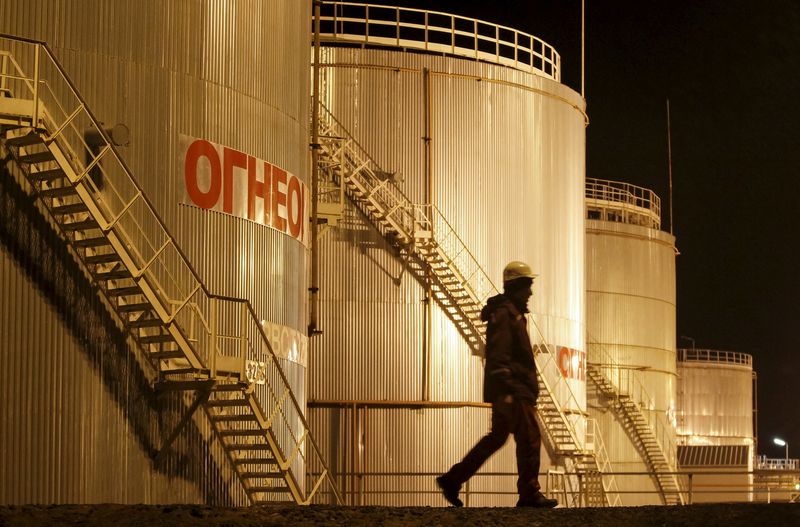Investing.com — Oil prices edged lower Thursday even as further signs of weakness in the labor market boosted hopes for rate cuts, just a day after U.S. inventories fell much more than expected.
At 2:30 PM ET (18:30 GMT), maturity fell 0.04% to $82.82 per barrel, while September expiration fell 0.04% to $85.211 per barrel, while
Cooling labor market companies increase their interest rate cuts
Data released earlier Thursday showed that the number of Americans filing new claims for unemployment benefits rose more than expected last week.
State unemployment benefits rose by 20,000 to a seasonally adjusted 243,000 for the week ending July 13, the Department of Labor said Thursday, above the expected 229,000.
Claims were also revised downwards the week before, while the unemployment rate rose to a 2.5-year high of 4.1% in June.
The cooling in the labor market raised expectations for U.S. interest rate cuts, allaying concerns about slowing economic activity in the world’s largest crude oil consumer.
US crude oil inventories are in continued decline
Official data from the Energy Information Administration released Wednesday showed the U.S. contracted by nearly 4.9 million barrels, compared with expectations of 0.9 million barrels.
The data showed U.S. inventories fell for a third straight week as demand from the world’s largest fuel importer appeared to pick up due to the busy summer season.
But the picture surrounding the weekly inventory was clouded by installation and inventories.
Concerns about China continue to play a role
Still, crude oil markets suffered sharp losses last week as a series of weak economic data from top importer China increased concerns about slowing global demand.
Data released earlier this week showed economic growth in the world’s largest oil importer slowed in the second quarter.
Concerns about increased trade tensions with the US also increased after a Bloomberg report said the US government was considering tighter restrictions on China’s technology and chip manufacturing sectors.
Such a move could anger Beijing, leading to a renewed trade war between the two countries.
(Peter Nurse, Ambar Warrick contributed to this article.)


